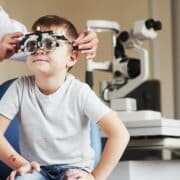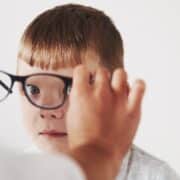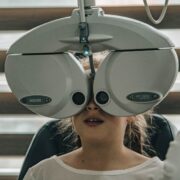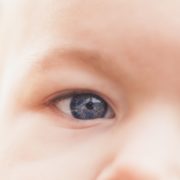Children’s Eye Health: The Importance of Early Vision Care and Comprehensive Eye Examinations
As parents, we understand the essential role that healthy vision plays in our children’s overall growth, development, and well-being. Ensuring the early identification, intervention, and management of potential eye and vision problems is vital in providing our children with the best possible opportunities to thrive, both academically and socially. At Perspective Optometrists, our dedication to championing comprehensive eye care extends to caring for the visual health of children, guiding them towards a lifetime of optimal eye health and clear vision.
In this insightful blog post, we will emphasise the significance of early vision care and routine comprehensive eye examinations for children. We will discuss the key developmental milestones that should prompt parents to seek professional eye care for their children and the most prevalent vision issues observed in young eyes. In addition, our eye care experts at Perspective Optometrists will provide guidance on the essential components that comprise a thorough children’s eye examination and the steps parents can take to nurture and protect the eye health of their little ones.
Embarking on a journey towards safeguarding your child’s vision and eye health, this in-depth guide is your trusted companion. With the proficient support of Perspective Optometrists, your family can embrace a nurturing approach to children’s eye care, ensuring that your little ones receive the foundation they need to enjoy a lifetime of visual clarity and vibrant ocular well-being.
1. The Significance of Early Vision Care and Eye Examinations for Children
The development of healthy vision during early childhood lays the foundation for a lifetime of visual clarity and ocular well-being. Comprehensive eye care and frequent eye examinations for children are crucial for several reasons:
- Early identification of vision problems: Many common eye conditions may go unnoticed in children, especially if they are too young to express their discomfort. Regular eye exams help detect these issues, allowing for timely intervention and better treatment outcomes.
- Monitoring visual development: Childhood is a critical period for visual development, and ensuring that your child’s eyes are functioning optimally is vital in supporting their overall growth, learning, and well-being.
- Supporting academic performance: Vision plays a significant role in a child’s ability to learn, read, and succeed academically. Early vision care helps ensure that your child’s eyes are functioning at their best, enabling them to excel and achieve their full potential.
- Promoting social and emotional development: Healthy vision is essential for children’s social and emotional growth, as vision plays a central role in interpreting facial expressions, gestures, and body language.
2. Key Developmental Milestones and Prevalent Vision Issues in Children
Understanding the pivotal milestones in visual development, along with the typical vision issues faced by children, can empower parents to make informed decisions about their child’s eye health. Some key milestones and prevalent vision concerns include:
- Infancy: During the first few months of life, infants should be able to track objects and maintain visual focus smoothly. Parents should remain vigilant for unusual eye movement patterns, excessive tearing or discharge, and potential signs of misaligned or crossed eyes.
- Toddlers and preschoolers: At this stage, children should display good hand-eye coordination, the ability to recognise colours, and improved depth perception. Amblyopia (lazy eye), strabismus (crossed or misaligned eyes), and refractive errors (e.g., myopia, hyperopia, and astigmatism) are common concerns during these years.
- School-aged children: As reading and writing become increasingly important, the ability to focus on close tasks and maintain clear, comfortable vision at varying distances is essential. Myopia (short-sightedness) often emerges during these years and warrants professional evaluation and intervention.
3. Essential Components of a Comprehensive Children’s Eye Examination
A thorough children’s eye examination covers various essential aspects of visual function, enabling optometrists to assess your child’s eye health holistically. Important components of comprehensive eye exams for children include:
- History and background information: Gathering a detailed history of your child’s birth, developmental milestones, medical history, and any family history of eye conditions provides vital context for the eye examination.
- Visual acuity testing: This component evaluates your child’s ability to see clearly and sharply at various distances, identifying any potential refractive errors that may impair their vision.
- Eye movement and focusing assessments: These evaluations ensure that your child’s eyes can work together effectively, track moving objects, and shift focus between near and far objects without difficulty.
- Vision screening tests: Various screening tests assess the presence of common eye conditions such as amblyopia, strabismus, and colour vision deficiencies.
- Eye health evaluation: A comprehensive examination should include an assessment of your child’s eye health, using specialised equipment to evaluate the structures of the eye for any abnormalities or signs of disease.
4. Parental Tips for Nurturing and Protecting Children’s Eye Health
Parents play an instrumental role in safeguarding their children’s eye health and nurturing optimal visual development. Some practical tips for supporting your child’s eye health include:
- Schedule regular eye exams: Ensuring your child undergoes routine eye examinations, beginning during infancy and continuing throughout their school years, is a cornerstone of maintaining optimal eye health.
- Encourage outdoor play: Studies suggest that spending time outdoors may protect against the development and progression of myopia in children. Encourage outdoor activities as part of a balanced lifestyle.
- Promote a healthy diet: A well-rounded diet rich in fruits, vegetables, and omega-3 fatty acids can support overall health and contribute to optimal eye health.
- Limit screen time: Minimising extended periods of screen time can help reduce digital eye strain and promote healthy eye development in children.
- Teach eye safety: Educate your child on the importance of protecting their eyes from potential hazards, such as sports injuries or exposure to the sun, by wearing protective eyewear when necessary.
Partner with Perspective Optometrists for Comprehensive Children’s Eye Care
Embracing early vision care and comprehensive eye examinations for your child can make a world of difference in their overall growth, development, and well-being. By understanding the importance of nurturing their visual health from a young age, you can provide your child with the strong foundation they need for a lifetime of healthy vision.
At Perspective Optometrists, we are committed to offering our expert guidance and support as your family embarks on this journey. Together, we can champion children’s eye health and ensure a bright future for our little ones.










